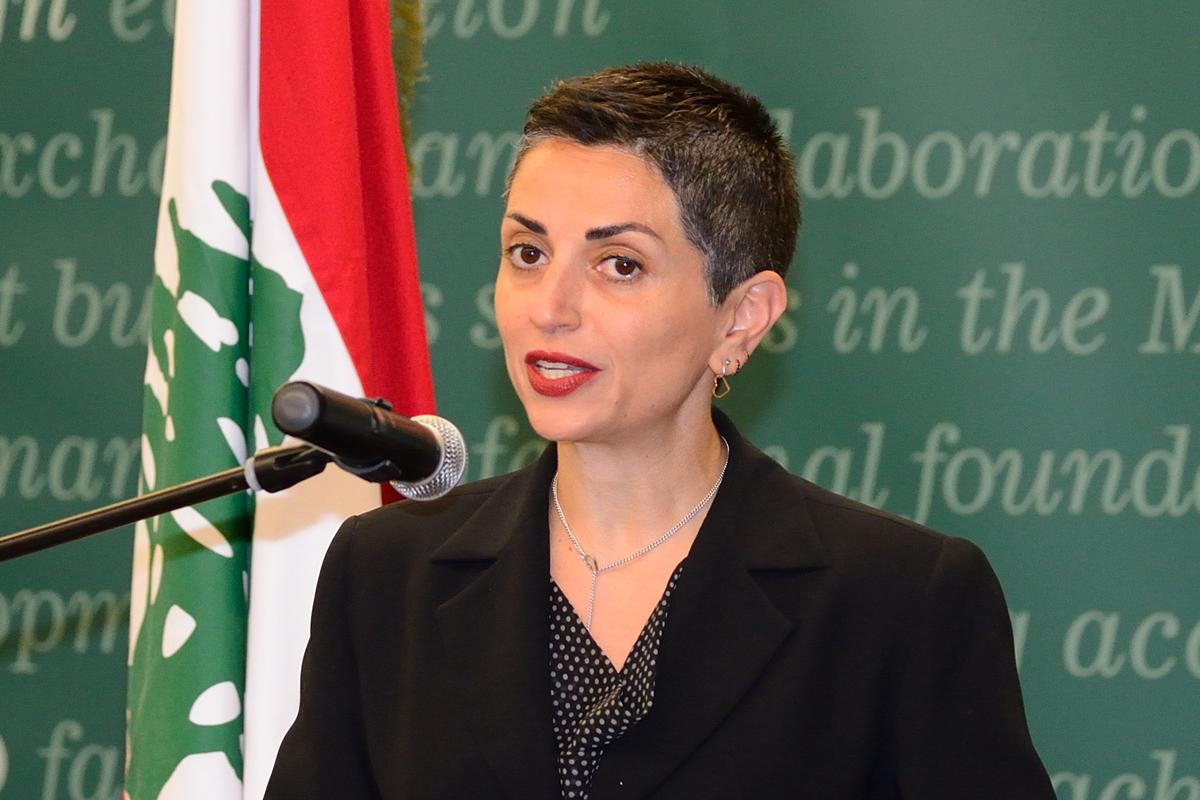Peace from a Woman’s Lens
IWSAW director weighs in on women’s role in peace building on International Day of Peace.
On September 21 of every year, the world celebrates International Day of Peace. To mark the occasion, the Marketing and Communications Department sat down with Dr. Lina Abirafeh, director of the Institute for Women’s Studies in the Arab World (IWSAW), to talk about how including women in the peacebuilding process is the key to stability and progress in the region.
Do you think having more women in positions of power could create better peacebuilding?
Globally, there have been calls for decades to ensure women’s full inclusion in all aspects of peacekeeping and peacebuilding, which means that organizations have recognized the vital role women play in conflicts and crises. In fact, women are pivotal to peace, and peace has to be viewed from the lens of the women. If it is not – which happens often – it renders peace meaningless.
Why is it so important to view peace “from the lens of the women?” And why do you think women are the first to suffer when conflicts arise?
When a crisis hits, new forms of conflict and violence emerge, especially for women and girls whose pre-existing vulnerabilities become amplified. In fact, just when we think that the emergency – be it war or a natural disaster – is over, for women, the emergency is just beginning. So we need to understand both conflict and peace from a gendered perspective, and what “peace” means for women.
Before joining LAU, I worked in places like Afghanistan, Haiti, Nepal, the Congo, the Central African Republic and others for 20 years. Throughout those experiences, I’ve learned that one in three girls or women worldwide will experience some form of violence in their lifetime. Violence against women is the most egregious human rights violation in the world, and it is often perpetrated by those we love and trust. This includes people who come to “help.” Too often, we hear of peacekeepers or relief workers who exploit the very women they are supposed to protect. It’s very difficult for them to feel safe ever again.
Closer to home, where do the Arab states stand on inviting women to play a part in the peacebuilding process?
Women, Peace and Security has been a key UN strategy for quite some time – and this region is far behind. Too many Arab countries are among the lowest ranked in terms of how they measure women’s wellbeing and empowerment in homes, communities, and societies, both in times of peace and instability. Look at countries like Syria, Yemen, Iraq, Sudan, and Palestine. Where is the peace? And when there is talk of peace – where are the women?
For 45 years, IWSAW has both pioneered and served as a catalyst for empowering women. Considering the emergencies for the women in the region, especially in neighboring Syria, what steps has the institute taken to address these crises?
Together with the United Nations Economic and Social Commission for Western Asia (ESCWA), IWSAW held a conference entitled Women, Peace and Security. It called for introducing a new paradigm that promotes a culture of peace and active protection of women from violence, and it tackled issues of violent extremism, radical religious discourse and political repression.
Another example of the institute’s work is No Demand No Supply, a lecture performance that was based on video and audio interviews with the Syrian women who survived sexual trafficking in Lebanon. The performance was created by women, about women and told from women’s perspective, which helped raise unprecedented awareness on the plight of Syrian women refugees.
The institute further promotes women in peacebuilding by partnering with the Continuing Education Program (CEP) to establish a certificate program on Gender in Development and Humanitarian Assistance. The innovative program combines academic knowledge and practice to address the role of women in contexts of peace, post-conflict and recovery. It creates a new standard in gender education for development and humanitarian professionals in line with internationally recognized practice, and helps build local capacity to address local issues – creating a cadre of professionals in the Arab region who can carry this work forward. Through this program, we at IWSAW aim to lay the foundations for genuine sustainable development as well.
What is your message to women in the region who are already in positions of power?
They MUST do more. These women are very few, but they often subscribe to the patriarchal status quo rather than use their positions to fight for change from the inside. We at the institute would love an opportunity to guide these women – perhaps form a coalition of women in the region who are serious about equality, peace and prosperity; women who are inclusive and non-discriminatory and who represent the full range of women in the region. Those are the women leaders I’d like to see – and see more of! And then we’ll stand a chance for peace.
